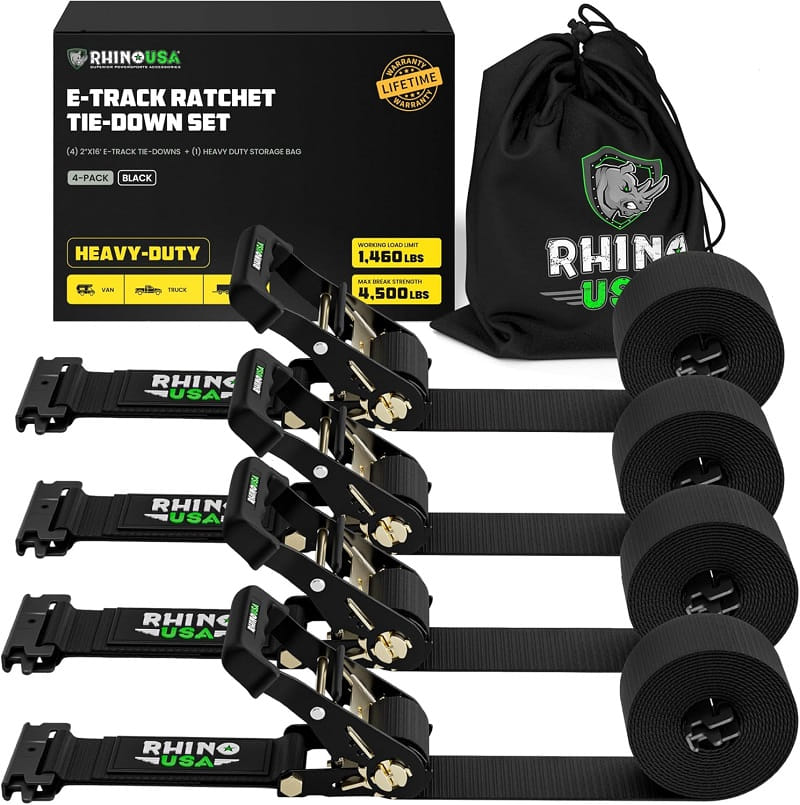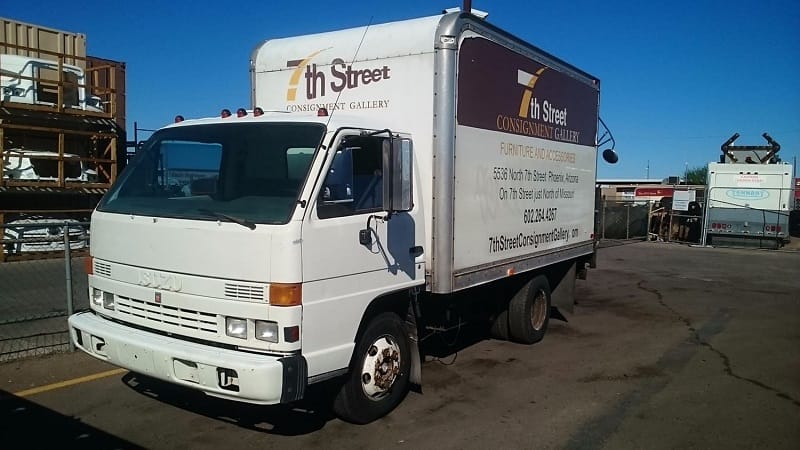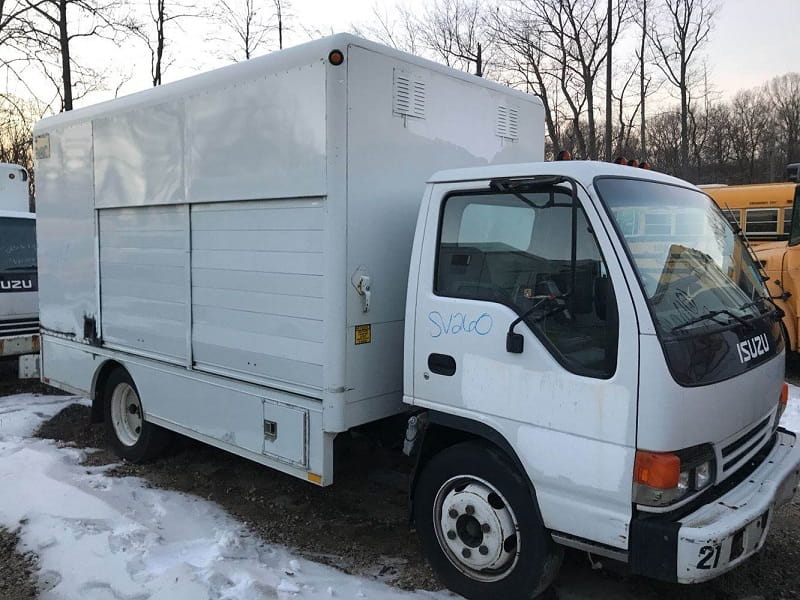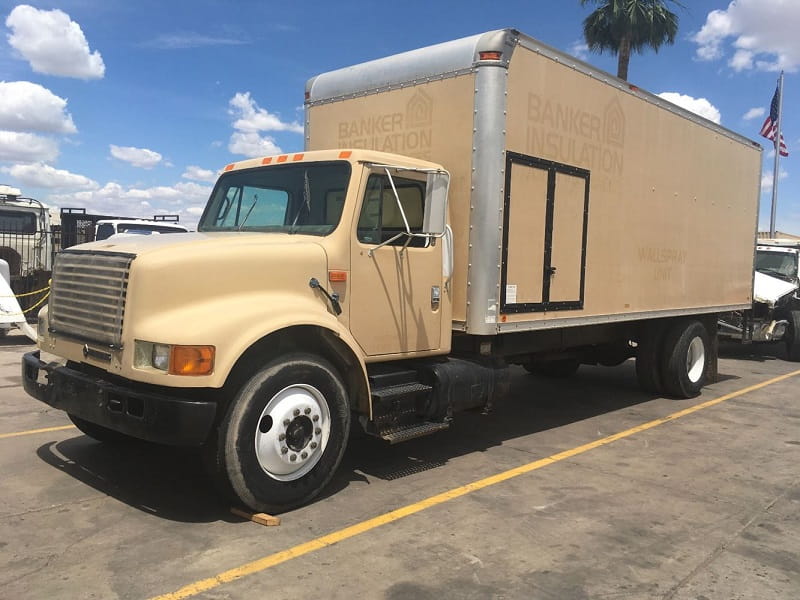This post contains affiliate links. This means I will make a commission at no extra cost to you should you click through and make a purchase [ “As an Amazon Associate, I earn from qualifying purchases.” ]. Read the full disclosure here.
Salvage Box Truck for Sale: A Budget-Friendly Opportunity or a Costly Gamble? GuideMechanic.Com Looking for a salvage box truck for sale can be a great way to save money—if you know what you’re doing.
These trucks are often sold at a fraction of the price of standard used vehicles. But behind that low sticker price could be anything from minor cosmetic issues to major frame damage.
This guide will help you understand what a salvage title means, when it’s a good idea to buy, and what price range you can expect for different box truck sizes.

Salvage Box Truck for Sale
See Also: Box Truck for Sale Ready for Delivery
What Is a Salvage Title Box Truck?
A salvage title means the truck was deemed a total loss by an insurance company—usually due to damage, theft, or natural disaster.
It doesn’t necessarily mean the truck is undrivable. In fact, many salvage trucks are still mechanically sound and have plenty of life left in them.
Common Reasons for a Salvage Title:
- Collision damage (repairable or not)
- Flood or storm damage
- Theft recovery
- Vandalism
- Fire damage
- Hail or cosmetic damage
Once a truck is repaired and passes a state inspection, it may be granted a rebuilt title, allowing it to be registered again for road use.
Salvage Box Truck for Sale
Pros and Cons of Buying a Salvage Box Truck
Pros:
- Lower price—up to 50% off market value
- Opportunity for DIY repairs
- Great for non-road use (storage, mobile workshops, parts)
Cons:
- Harder to insure
- Unknown long-term reliability
- Lower resale value
- Risk of hidden structural or electrical damage
A salvage box truck can be a steal, but only if you or your mechanic know how to evaluate its true condition.
Who Should Consider a Salvage Box Truck?

Salvage trucks aren’t ideal for everyone, but they make sense for certain buyers:
- Mechanics or experienced truck owners who can do repairs
- Small businesses needing a temporary or local-use vehicle
- Construction crews using trucks as on-site storage
- Food truck builders planning a custom rebuild
- Parts buyers who want to strip the vehicle
If you don’t need a showroom-perfect truck, salvage vehicles can offer incredible value.
Key Things to Inspect Before Buying
Before buying any salvage box truck, perform a deep inspection. Never trust appearances alone.
Check:
- Frame and chassis for warping, cracks, or bends
- Engine and transmission for leaks or warning lights
- Title history report (verify mileage, ownership)
- Electrical systems—lights, HVAC, dash indicators
- Signs of flood damage—rust, mold, corrosion
- Brake and suspension systems
If possible, have a diesel mechanic or body shop evaluate the vehicle.
Best Salvage Box Trucks to Consider
Some brands hold up better than others, even after damage. Here are a few models known for durability and parts availability:
| Make & Model | Typical Size | Engine Type | Why It’s Popular |
|---|---|---|---|
| Ford E-350 / E-450 | 12–16 ft | Gas | Easy to repair, common parts |
| Isuzu NPR / NQR | 14–20 ft | Diesel | Excellent visibility, tough cab |
| Freightliner M2 | 22–26 ft | Diesel | Fleet favorite, sturdy frame |
| GMC Savana 3500 | 12–14 ft | Gas | Low cost, versatile |
| Hino 268 | 20–26 ft | Diesel | Strong chassis, good resale value |
Even with salvage titles, trucks from these brands tend to last longer when properly repaired.
Price Table: Salvage Box Truck Market Pricing

Wondering how much to budget? Here’s a breakdown of typical prices for salvage box trucks based on size and condition.
| Truck Size | Common Model Years | Condition | Estimated Price | Notes |
|---|---|---|---|---|
| 12 ft | 2013–2020 | Drivable, minor damage | $3,000–$6,500 | Good for short hauls, storage use |
| 14 ft | 2012–2019 | Needs some repair | $4,000–$7,500 | Often from rental fleets |
| 16 ft | 2011–2018 | Cosmetic or side damage | $4,500–$9,000 | Great value if mechanically solid |
| 20 ft | 2010–2017 | Front or rear collision | $5,000–$10,000 | Frame inspection required |
| 24–26 ft | 2008–2016 | Heavy cosmetic or theft | $6,000–$12,000 | Best used for parts or rebuild |
Prices vary depending on location, damage type, and mileage. Salvage vehicles are often sold at auctions or commercial truck yards.
Can You Register and Insure a Salvage Box Truck?
Yes—but it depends on the state. Most states allow salvage vehicles to be re-registered only after passing a state inspection, at which point they may receive a rebuilt title.
Insurance Considerations:
- Some insurers won’t cover salvage or rebuilt vehicles
- Others will only offer liability, not full coverage
- Rebuilt titles often reduce resale value
Call your insurance company in advance to ask if they’ll cover a rebuilt box truck and at what level.
When to Walk Away from a Salvage Truck
Even at a discount, some salvage trucks just aren’t worth it. Avoid buying if:
- Frame is visibly twisted or rusted through
- Water or fire damage affected the electronics
- Seller won’t provide a damage report or VIN
- You can’t legally register it in your state
Unless you’re stripping it for parts, avoid trucks with major front-end or chassis damage.
Final Thoughts

Buying a salvage box truck for sale can save you thousands of dollars—if you’re careful. For hands-on buyers, mechanics, or budget-minded businesses, it’s a smart way to get a capable vehicle for half the cost of a traditional used truck.
Just remember: every salvage truck has a story. The key is knowing when it’s a diamond in the rough—and when it’s a money pit.
If you can find one that’s structurally sound and repairable, a salvage box truck could be the best deal you ever made.
- Custom Lifted Diesel Trucks for Sale - December 20, 2025
- New Lifted Diesel Trucks for Sale - December 19, 2025
- Old Lifted Diesel Trucks for Sale - December 18, 2025
